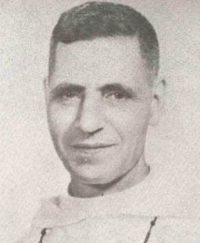One day the American troops were delayed in arriving at Manaoag in recapturing the fifteen kilometers which separated it from San Fabian. It took them one week to advance eleven kilometers to Pozorrubio. The cause was the Pugaros. The troops that landed in Lingayen went directly to Manila in forced marches which were not really forced. They could have advanced and come within a few days in an unprecedented blitzkrieg. But the Japanese had retreated to the eastern and western mountain ranges, and the liberators feared flank attacks which would isolate their vanguard from the main body of the Army. In spite of having slowed down their march, their provisions hardly caught up with them. The High Command had estimated that they could enter Manila by the end of March. Now they expected to make it on the first week of February.
There was another surprise for us since we sang hossana in praise of those who came in the name of the Lord. We feared that the Japanese air force would not give a moment of respite to the fleet and the landed troops, with successive bombings by suicide squads. At least this was what the Japanese radio and press reported every time a landing was made. The Americans just laughed off the reports of Radio Tokyo about the damage suffered by the American convoys and forces, with hundreds of ships sunk and entire divisions annihilated.
Almost every night, the air raid signal rang out, but it was seldom that a Japanese plane penetrated through, coming in a suicide attempt as it was caught between anti-aircraft fire and the clutches of some night fighters which patrolled the occupied areas. It was seldom that a desperate Japanese plane succeeded in dropping a bomb among the innumerable ships anchored on the Gulf. What happened to the zero fighters and the Wild Eagles whose exploits were so much praised by the Tokyo radio? In Lingayen, the Japanese left behind more than fifty planes, and more than 300 in Clark Field.
